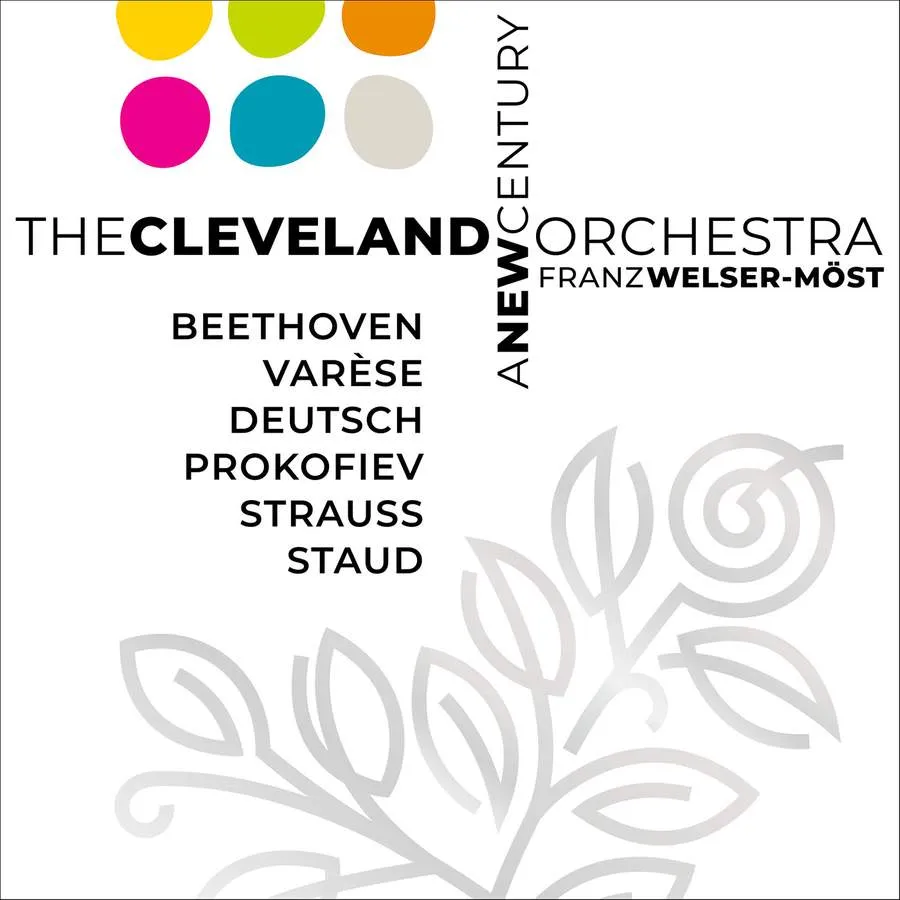
A New Century Beethoven: String Quartet No. 15 in A minor, Op. 132 (Arr. Orchestra); R. Strauss: Aus Italien, Op. 16; Varèse: Amériques; Johannes Maria Staud: Stromab; Bernd Richard Deutsch: Okeanos*; Prokofiev: Symphony No. 3 in C minor, Op. 44 *Paul Jacobs (organ); Cleveland Orchestra/Franz Welser-Möst Cleveland Orchestra TCO0001 188:00 mins (3 discs)
Recorded live across a two-year period, this handsomely packaged set (with historical essays and notes on the music), provides a snapshot of the Cleveland Orchestra round its centenary in 2018, and is the first release on its new in-house label.
All six performances are conducted by the orchestra’s music director Franz Welser-Möst, who has been in Cleveland since 2002 and recently signed a contract extension until 2027. Overall, they paint a picture of sovereign technical command, with an upholstered warmth of tone not automatically in the DNA of American orchestras.
Both traits are evident in the richly nuanced account of Beethoven’s Op. 132 String Quartet on disc one, performed by the full Cleveland string section. The unanimity of attack and accent are unfaltering, but it’s the expressive insight of the playing which is really striking. Both are evident in the opening Adagio sostenuto movement, where Welser-Möst’s addition of double basses shadowing the cellos an octave lower adds an extra notch of brooding intensity to the music.
The coupling is Varèse’s teeming Amériques, where the raw excitement of the playing never degenerates to shapeless cacophony. Disc two brings another percussion-heavy work, the Austrian composer Johannes Maria Staud’s 2017 piece Stromab (Downstream). Based on a short story by English writer Algernon Blackwood, it charts a canoe trip down the Danube into a macabre heart of darkness, and receives a rivetingly precise, atmospheric performance.
An effulgent traversal of Aus Italien blows the shadows away, highlighting Welser-Möst’s considerable Straussian credentials. The diaphanous textures of ‘Am Strande von Sorrent’ are ravishingly sifted, and even the joshing with ‘Funiculì, Funiculà’ in the finale, which can be irritating, is made light-heartedly enjoyable.
Disc three pairs the US premiere of Cleveland Young Composer Fellow Bernd Richard Deutsch’s roiling organ concerto Okeanos, with Paul Jacobs a dazzling soloist, and a gripping, stunningly played Prokofiev Third Symphony. It’s a piece with a reputation for rowdiness and dissonance, but the nuanced refinement of the Cleveland playing makes it more than that. The Andante, while dark-hued, is full of exquisitely etched detail, while the rushing strings in the Scherzo are tinglingly febrile without grating over-insistently on the senses.
The sound on all three discs is outstandingly well balanced and transparent, reflecting the exceptional acoustic of the orchestra’s Severance Hall headquarters. Audience noise is virtually non-existent, and there is no applause at the end of performances, which have the polish of studio recordings.
Cleveland has always been a by-word for the forensic exactitude of its players, and you can still hear that in the many recordings they made with the famously disciplinarian Georg Szell, and later with Lorin Maazel and Christoph von Dohnányi. But the empathy and expressive latitude Welser-Möst has added make you wonder if the orchestra has ever sounded better.
Terry Blain